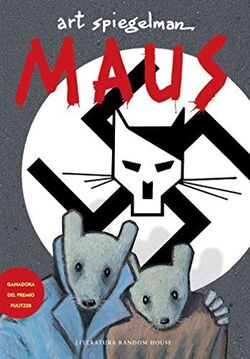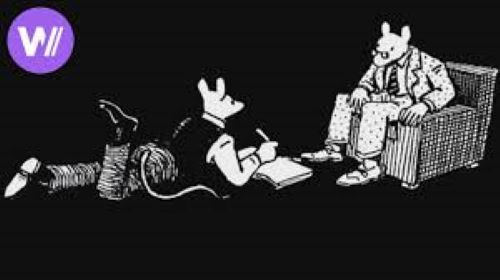 How strange, to be reading a book about the Holocaust while another slaughter takes place. For no good reason, I missed reading Art Spiegelman’s classic book, “Maus,” a graphic novel about his parents’ survival, of sorts, from Auschwitz. I always meant to read it since the first part was published in 1986, but just did not until now. However, when school boards and mayors and other American worthies began to ban this Pulitzer-Prize winning book as too controversial for young people, I realized I had to join the millions who had read it. I tried to take it out from the wonderful Nassau County library system only to discover I was 31st in the electronic waiting line – but fortunately there was a Spanish-language copy available from a few towns away. With my moderate Spanish and a handy dictionary – and the graphic panels displaying cruelty and hope – I read it. Meanwhile, a latter-day Hitler has decided to take over a neighboring people, even if he has to kill thousands, maybe millions, of them – “Man’s inhumanity to man,” to quote the Robert Burns poem, all over again, "a boot stamping on a human face – forever," in the words of George Orwell. Art Spiegelman was documenting it decades ago, as his aging father began to tell how the world fell apart in the late 30s in Poland, when the Nazis were flexing their muscles and most locals were none too hesitant to cooperate. Chapter by chapter, Spiegelman portrays himself, already an adult cartoonist with a political bent, getting his widower father to tell the story of his courtship and marriage and the inexorable plodding toward Auschwitz, followed by a reunion of the parents and the path to Rego Park, Queens, and the Catskills in the summer – heaven on earth, sort of, for people who have lived in Nazi hell. The artist portrays Germans as cats, Poles as pigs, Americans as dogs, the British as fish, the French as frogs, and the Swedish as deer. What would the Russians be, if and when we get to a similar re-telling of this horror? Perhaps, lumbering, dim-witted bear cubs, with an old and rabid bear sending them off to mutual slaughter, up against a Ukrainian people with a (Jewish!) hero/president, trying to rally the world. As the father talks to his son, he tells how he and his wife went underground, surviving with the help of the occasional kindly Pole, and then how they survived in adjacent camps, he by being fluent in English and German as well as Polish – and learning skills that make him valuable to the warden, who feeds him, protects him. The father tells of death, step by step, of men around him. It’s a horror show, but also a testimony to the will to live – now being seen by Ukrainians who fight bravely for what is theirs, while many elderly and children are sent to relative safety. Spiegelman’s masterpiece is worth finding – buying -- and assimilating. In “Maus,” people are flawed, one way or the other, but the urge to survive against the wicked is strong. For the people of Ukraine, my heart goes out.
Roy Edelsack
3/9/2022 11:24:45 am
I knew Art when we were classmates at Harper College (SUNY Binghamton). It amazes me having read “Maus” serially as originally published and then in the two bound volumes, how much was going on in his life while we were at school. And he never shared anything. In fact he seemed occupied trying to start a humor magazine and contributing surreal cartoons to the college newspaper. My other acquaintance-who-became-famous at Harper was Tony Kornheiser. Talk about the yin and the yang of college friends!
George
3/9/2022 01:24:11 pm
Roy, it sounds as if Spiegelman was working in the right direction in college -- he needed more time to process what his parents might have experienced,
Roy Edelsack
3/9/2022 11:36:02 am
"Harpur" College. Damn ye spellcheck!
Altenir Silva
3/9/2022 12:21:36 pm
Dear George: It's absurd that some people want to ban this masterpiece from the education process.
George
3/9/2022 01:14:04 pm
Altenir, we have a lot of backwards folks here....and we also had a president who got the flutters in the company of Putin, and whose father went to Hitler rallies in NYC. Great daily double for the USA.
bruce picken
3/9/2022 10:43:28 pm
george,
Phyllis Rosenthal
3/12/2022 01:26:13 pm
I first read "Maus" at publication in `1986, because at that time I knew Art Spiegelman, a journalist. To my disbelief, he was NOT the author, although many people thought he was , due to the same name. However, reading the book, and seeing its use of animals to portray its characters, blew my mind, and I was raised on " The Holocaust" from my early childhood. I find it interesting that the book is being "revisited" now, when a HITLER is back in the headlines. Thank you George Comments are closed.
|
Categories
All
|










